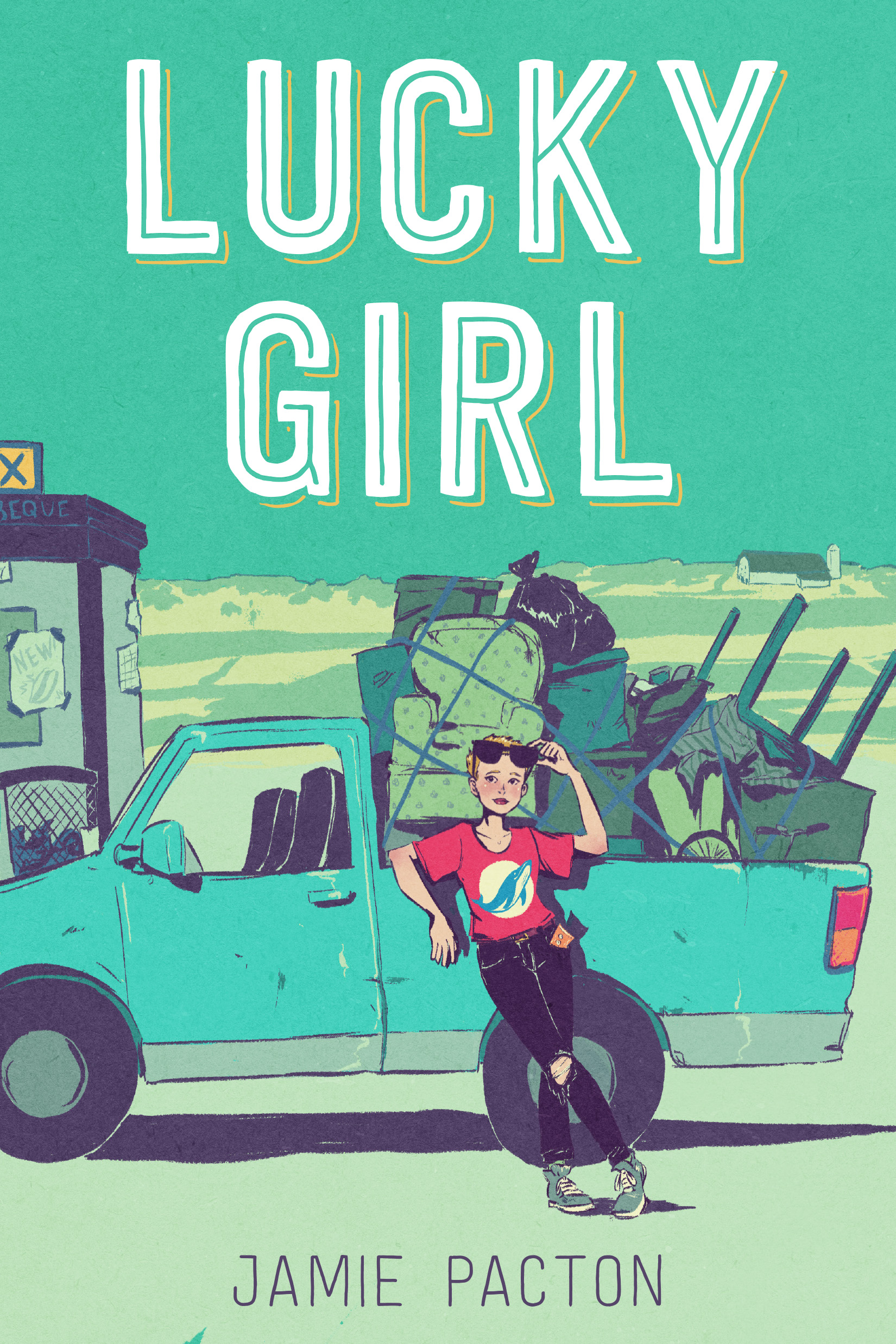"LUCKY GIRL" by Jamie Pacton (Page Street Kids, 240 pages, $18).
For every lottery ticket ever purchased, there is a universal wonder: What would I do if I won all that money? Blow it all on luxury items, or save it? Change my life, or change the lives of those around me? In East Tennessee native Jamie Pacton's second young-adult novel, "Lucky Girl," a winning ticket stirs up more trouble than it may be worth.
When Fortuna Jane Belleweather realizes she is the holder of a Mega-Wins ticket worth $58 million, how to spend the winnings is somehow the least of her concerns. The bigger problem is that she can't come forward to claim the prize because she was 17 when she (illegally) bought the ticket. At first she thinks she can just wait a few weeks until she turns 18, but then she discovers that both she and the neighborhood store that sold her the ticket could be prosecuted if her age at the time of purchase was uncovered.
The obvious answer is for a parent or guardian to claim the money, but for Jane there are no easy answers. After her firefighter father's death five years ago, Jane and her mother moved from Nashville to small-town Wisconsin to be near family. Ever since, Jane's mother has been spiraling, her obsession with saving others' cast-off memories - faded photo mugs, moth-eaten wedding dresses, stuffed animals and so much more - turning their home into a hoarder's paradise and driving Jane further away with each passing day. Jane can't trust her mother with the money, but whom can she trust?
Her beloved grandmother wants nothing to do with the lottery. Her best friend, Bran, is still 17, so he's not an option, and once the news gets out that the ticket was purchased in their small town, his journalistic aspirations launch him into the spotlight as he leads the search for the mysterious winner. Jane's ex-boyfriend, Holden, is 18, but in addition to the fact that he broke up with her, he has turned into someone else entirely since he got back from Future Investor Clubs of America camp.
Jane is desperate to escape her small town, her mother and the mountains of junk crowding their house, and this jackpot is the one thing that might make her escape possible. As Jane wrestles with her predicament (and her on-again, off-again feelings for Holden), Pacton infuses the story with posts and comments from the town's Facebook page, revealing the conflict and turmoil such a big announcement can bring to a small community. Everyone wants to know who the winner is, and neighbor turns against neighbor as they argue over how the money should be spent. Pacton also incorporates stories of previous lottery winners and their tragic outcomes. From actual murder to financial ruin, these stories of the ways money can destroy lives add depth to Jane's dilemma as she struggles toward a resolution.
Although the pacing of "Lucky Girl" is sometimes uneven, Pacton shines with dialogue, especially in this exchange between Jane and her mom:
Mom's voice is so quiet, I almost don't hear it. "I know, Jane. I know. But I can't seem to help myself. It's how I hold on to your father."
"You're not holding on to him! You're losing me. Don't you see that?" The words fly out of me, like birds let out of a cage. "This isn't a home anymore, and there's no room for me in it. I feel like you've buried me under all this stuff, and I have to fight for a place here."
Money might not solve every problem, but for Jane and her mother, the good it can bring ultimately outweighs the possible bad. While some of Jane's story might strain credulity, a lottery ticket is a natural fit for a little wish fulfillment, and young readers will enjoy dreaming along with Jane, imagining themselves as that oh-so-lucky winner.
For more local book coverage, visit Chapter16.org, an online publication of Humanities Tennessee.

